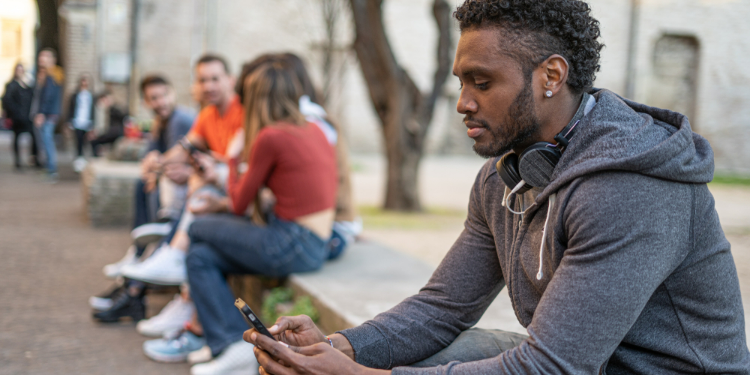
Throughout history in different parts of the world, the belief that different races possess distinct characteristics, abilities, or qualities, especially so as to distinguish them as inferior or superior to one another, has been part of the culture and search for power. Expats who have been victims of some sort of discrimination shared their feelings with us.
Expats in their countries and abroad can suffer prejudice, discrimination, or antagonism from local communities and institutions on the basis of their membership in a particular racial or ethnic group, typically one that is a minority or marginalized.
In the US, according to a Pew Research Center survey from 2019, opinions about the current state of race relations were also negative. About six-in-ten Americans (58%) said race relations in the US are bad, and of those, few see them improving.
For Spivak, subaltern people, the ones who suffer more from racism, are those who belong to “Third World” countries. According to her, it is impossible for them to speak up as they are divided by gender, class, caste, region, religion and other narratives. These divisions do not allow them to stand up in unity, and their struggle is to find spaces to be heard and to be represented.
The story of black expats around the world
Isaias de Jesus is a black expat from Brazil living in Spain. He has struggled with racism, and he has been seeing the existence of a hierarchy of racism. “When I arrived here in Europe, I understood that there are many people worse than me, especially from Africa, and that ended up being an advantage. That's when you realize that racism is far beyond you as an individual, is a social issue”, he shares.
According to a last year's report from the Spanish government on racism, 51.8% of the people interviewed stated that they had suffered discrimination in at least one of the situations raised in the survey: situations such as derogatory treatment, insults, verbal violence, discrimination in the workplace or housing, marginalization and social exclusion. The report analyzes the discrimination suffered by certain racial or ethnic populations in areas such as health, education, housing, or employment and 81.8% of people who suffer racism in Spain do not report discrimination.
Isaias shares he can justify the “invisible castes” by the experiences he had so far in Spain. “When I started to work, I understood that here in Spain, the working class, the underpaid and badly treated sub-jobs are almost unanimously done by Latinos, Arabs, and Africans. There are obviously other groups like the Indians and Chinese who are parallel to all this. But within the group of Latinos, I feel privileged to be Brazilian.” Isaias shares that since he can't change a racist society, he has been using it as a strategic tool to survive and find opportunities. “Somehow our culture fantasizes racism, and this causes subgroups to emerge within the group of the oppressed that stand out for racist stereotypes such as black beauty and sex.”
Isaias feels small in all of this, as he learned about racism by being an expat. “I had to learn where I came from and who I was.” He shares he started to rethink about his life and the fact he also had issues with recognizing his black identity in Brazil. “I remember in school always saying I wasn't black and knowing I wasn't white. I remember my family, very Christian, always saying negative things about the African matrix regions. But when I left Brazil, I started to see that racism is much wider and is directly linked to the economic power of groups of people and countries.”
Living and dealing with racism: back home and abroad
Georgina Santos da Silva identifies as a black Brazilian expat living in Madrid. She believes that being a black Latina woman is a very important social characteristic in her life. According to the HSBC Expat Explorer Survey 2019, Spain ranks fourth as the best place to work and live. With experience in the States, Georgina moved to Spain to try a country with a “closer culture” to South America and also because she wanted to learn another language. But, even so, she thinks there are stereotypes and racism associated with women in Latin America and Brazil. “The main thing is that we are extremely sexualized, and unfortunately, this prevents us from living healthy relationships often outside of Brazil. We are also associated with getting married in order to live here. Since we arrived, we are here to “hunt gringos.” Afraid of being judged by these stereotypes, Georgina did not comment on her nationality in the first place for all people. “I am an Afro-descendant who speaks English fluently, and I can ‘pass as an American'. But, when people find out, I hear all kinds of negative associations I have mentioned before.”
There are many things that discourage black expats from living in “mostly white” countries. Isaias comments he doesn't love Europe, but back home, the situation is worse. “I like it here because where I wanted to love is difficult. Brazil is not just racist. It's delayed in history, it's tired, it could be better, and it isn't. Maybe there is hope for the future, but today it hasn't. And racism is inside this Brazilian life like a uniform. If you are white or black or whatever within Brazil, you will always be categorized without even knowing why exactly. Nobody wins anything, though”. On the other hand, he admits society is contradictory and permits in culture that people from different races share life at the same level. “But there are some very contradictory moments that we start to connect more. It has to do with the carnival, football, and faith. Within Brazil is always a lot of unions or a lot of separation, it depends on where”.
Are there less-racist places?
Although The International Convention on the Elimination of All Forms of Racial Discrimination (ICERD) is committed to the elimination of racial discrimination and criminalizes membership in racist organizations, for Isaias, racism is everywhere. “Africans are dying fleeing to other countries, Brazilians are migrating to European countries and the United States. And racism is in it all”. Isaias believes there is no place that has less racism. However, according to him, countries are missing the opportunity to grow and thrive. “I think the most interesting thing for me, within all that I have known about the societies of the countries that I have visited personally or known by other expats' experiences, I have seen that what can be done is to recognize that everything works out better when everyone feels good. Social well-being goes hand in hand with economic well-being.”



















